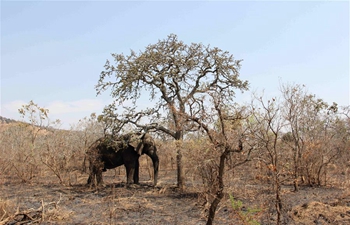CHICAGO, Sept. 29 (Xinhua) -- Growing and harvesting bioenergy crops, say corn for ethanol or trees to fuel power plants, is a poor use of land, which is a precious resource in the fight against climate change, said University of Michigan (UM) Energy Institute professor John DeCicco.
DeCicco's new opinion was an expansion of his earlier findings that biofuels are not inherently carbon-neutral, as they are widely purported to be.
The assumption that bioenergy simply recycles carbon is a major accounting error, DeCicco and William Schlesinger, president emeritus of the Cary Institute of Ecosystem Studies, held.
The core of the assumption is the idea that producing a biofuel and then burning it for energy moves a given amount of carbon from the biosphere to the atmosphere, and back again in an unending and stable cycle. That's in contrast to the current one-way flow of fossil-fuel carbon from the Earth to the atmosphere.
But DeCicco said he saw a problem here: For bioenergy to be actually carbon neutral, harvesting the biomass to produce it would have to greatly speed up the net flow of carbon from the atmosphere back into vegetation. Otherwise, many decades can pass before the "carbon debt" of excess carbon dioxide in the air is repaid by future plant growth.
"All currently commercial forms of bioenergy require land and risk carbon debts that last decades into the future. Given the urgency of the climate problem, it is puzzling why some parties find these excess near-term CO2 emissions acceptable," the researchers noted.
In 2016, DeCicco published a study finding that just 37 percent, rather than 100 percent, of the carbon dioxide released from burning biofuels was balanced out by increased carbon uptake in crops over the first eight years of the U.S. biofuel mandate.
To reduce the concentration of carbon dioxide in the atmosphere requires increasing the rate at which trees and other plants remove it from the air, DeCicco and Schlesinger pointed out.
"By avoiding deforestation and by reforesting harvested areas, up to one-third of current carbon dioxide emissions from fossil fuels could be sequestered in the biosphere," the researchers wrote. "Terrestrial carbon management can keep carbon out of the atmosphere for many decades."
The new opinion was published in the latest edition of Proceedings of the National Academy of Sciences.

















